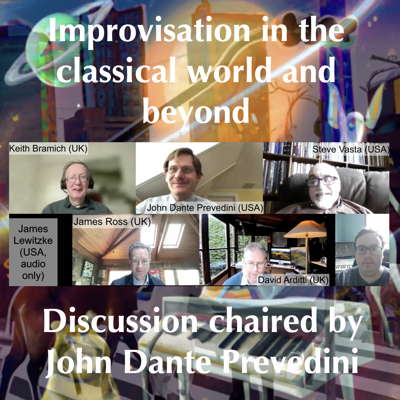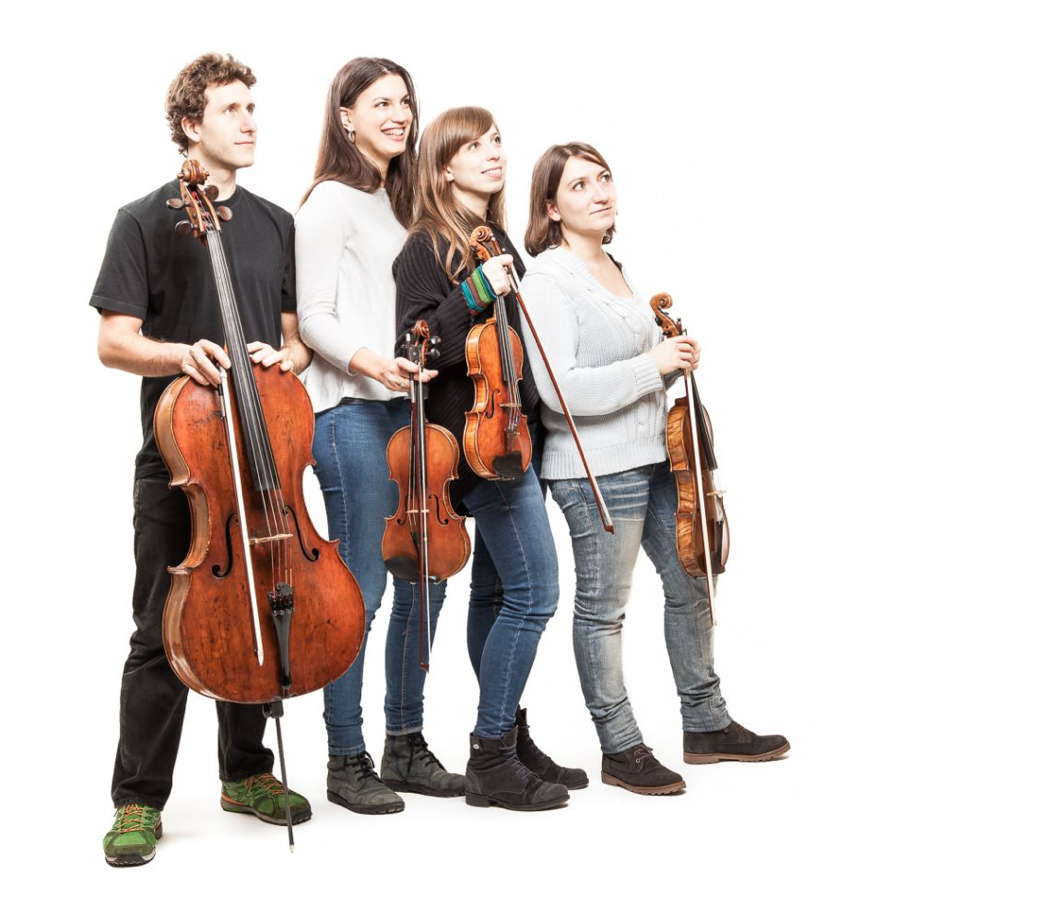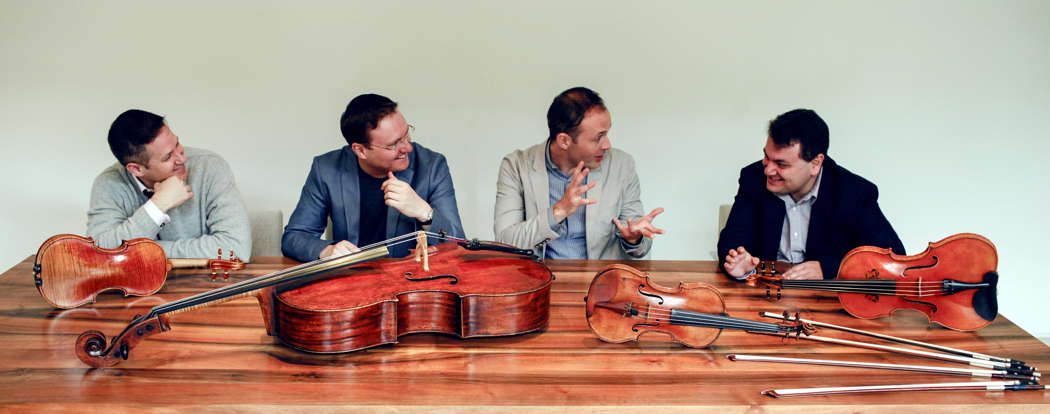 DISCUSSION: John Dante Prevedini leads a discussion about Improvisation in the classical world and beyond, including contributions from David Arditti, James Lewitzke, James Ross and Steve Vasta.
DISCUSSION: John Dante Prevedini leads a discussion about Improvisation in the classical world and beyond, including contributions from David Arditti, James Lewitzke, James Ross and Steve Vasta.
 DISCUSSION: John Dante Prevedini leads a discussion about Music and the Visual World, including contributions from Celia Craig, Halida Dinova and Yekaterina Lebedeva.
DISCUSSION: John Dante Prevedini leads a discussion about Music and the Visual World, including contributions from Celia Craig, Halida Dinova and Yekaterina Lebedeva.
Compositional Fury
More Beethoven string quartets in Rome,
reviewed by GIUSEPPE PENNISI
While in Northern Italy, concert halls, museums, stadiums, sports clubs and other gathering places are closed as a precautionary measure against the coronavirus epidemic, Rome's cultural and musical life is alive with enthusiasm as always. Particularly inspiring is the full performance of Ludwig van Beethoven's sixteen string quartets, organized by the Roman Philharmonic Academy to celebrate the composer's 250th birthday. I reported on this on 13 February 2020, commenting on a concert by the Belcea Quartet.
In this review, I'm writing about the Jerusalem Quartet's 20 February 2020 concert and am also illustrating the activities of the Lyskamm Quartet, a young chamber ensemble in residence this season at the Rome Philharmonic Academy. While more established groups - such as the Pavel Haas Quartet, the Belcea Quartet, the Jerusalem Quartet and the Hagen Quartet - perform at the central Teatro Argentina, the Lyskamm Quartet is playing in the small and cozy Sala Casella in the gardens of the Roman Philharmonic, almost on the edge of the Villa Borghese.

The Lyskamm Quartet - from left to right: Giorgio Casati, cello, Cecilia Ziano, violin, Clara Franziska Schoetensack, violin and Francesca Piccioni, viola
In its initial concerts, the Lyskamm Quartet combined six Beethoven string quartets with Béla Bartók's six string quartets, as well as contemporary works such as Giulia Lorusso's In superficie: this helps to show the modernity of the composer from Bonn. I have not until now reported in detail on the Lyskamm Quartet, reviewing the individual concerts, because I think it is better to pull the lines when the program has reached a good stage of progress. It is necessary, however, to praise the initiative of the Roman Philharmonic, because only by listening to Beethoven's sixteen string quartets, and juxtaposing them with composers of the late nineteenth and twentieth centuries, can we see the unprecedented variety of solutions and procedures and innovation in the musical architecture. First, the abandonment of four movement format. Secondly, the change in the relationship of duration (absolute and relative) between movements, which causes major effects.
These innovations are highlighted well by the Jerusalem Quartet (founded in 1993/94 by four Israeli musicians of Russian origin) who performed two of Beethoven's quartets for strings relatively far apart, in time, from each other. The first is the Quartet No 8 in E minor, Op 59. It is the second of the so-called Rasumovky quartets, named after the Russian aristocrat and long-time Ambassador to Vienna, who commissioned them. It dates back to 1804-1805. It is structured, formally, in four movements, but the durations of each movement vary. The Jerusalem Quartet played the complex third movement Allegretto - Maggiore Theme Russe particularly well.

The Jerusalem Quartet - Akexabder Pavlovskly, violin, Sergei Bresler, violin, Ori Kam, viola and Kyril Zlotnikov, cello. Photo © 2015 Felix Broede
The second piece is one of the last quartets of a Beethoven sick but caught up in compositional fury: the five movement Quartet No 15 in A minor, Op 132. Again, the client was a Russian aristocrat: Nikolaus Boris Galitzin, an amateur musician who was aware of the quartets composed a decade earlier on commission by one of his compatriots. Although the cheerful (first, second and fifth movements) and the lively (fourth movement) predominate, the molto adagio of the third movement characterizes the tormented tone of the quartet. The Jerusalem Quartet's performance was very good, although the first violin and cello partly dominated the other two instrumentalists.
Copyright © 27 February 2020
Giuseppe Pennisi,
Rome, Italy

FURTHER INFORMATION: LUDWIG VAN BEETHOVEN


